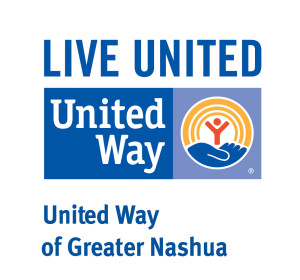Frequently Asked Questions
What Exactly Does United Way Do?
United Way advances the common good in Nashua and the ten surrounding towns listed below by:
- Assessing the needs
- Partnering with local non-profits whose programs address the most pressing community needs
- Measuring outcomes to ensure our investments get positive results
See additional information on the Our Work page.
United Way of Greater Nashua serves Amherst, Brookline, Hollis, Hudson, Litchfield, Lyndeborough, Merrimack, Milford, Mont Vernon, Nashua, and Wilton, NH.
Where Does the Money Come From?
Over 60 percent of United Way’s funds come from employee campaigns at companies in our 11-community area. The average employee gift of $200 (about $4/week) typically is made through payroll giving and makes a significant impact when combined with thousands of similar contributions. Other funding sources include corporations’ direct contributions and support from individuals, community organizations, and local governments as well as a variety of fundraisers and informational events that United Way holds each year.
Where Does the Money Go?
United Way of Greater Nashua supports program services provided by IRS tax-exempt organizations, both locally and outside of our area. For a breakdown of our community investments. Specific program funding is listed by impact area in the Community Investment section of our website.
How Do I Know That My Donation Will Be Effective?
United Way of Greater Nashua focuses on critical needs that affect many of us, such as health care, childcare and after-school programs, violence prevention, and food, clothing, and shelter. We help break the cycle of poverty and move individuals and families out of crisis and toward self-sufficiency. United Way funds programs to meet those needs and then measures the results to make sure progress is being made. We ask agencies to report how clients’ lives have been improved as a result of programs that are supported by United Way’s Community Impact Fund.
United Way honors donors’ choices and will direct all or part of their gift to a specific agency at their request.
United Way monitors only donations made to its Community Impact Fund, however.
Does United Way Fund the Same Programs Every Year?
United Way of Greater Nashua’s community investment process is open to any non-profit organization that meets eligibility criteria for program funding. This allows UWGN to fund the best available programs in the community as long as the agencies meet eligibility criteria.*
Also, instead of requiring agencies to apply for funding annually, UWGN makes multi-year funding available for programs consistently deemed the most effective in improving people’s lives. For agencies approved for program funding, this means less paperwork and staff time devoted to writing and defending proposals that are highly rated by community investment volunteers. For United Way, it allows in-depth analysis of core problems in the community. The amount of funding each year is subject to money available in the Community Impact Fund.
Form more information on the process programs go through to receive United Way funding, please refer to the FOR SERVICE PROVIDERS section of the website.
Why Aren’t All Agencies Affiliated With United Way?
Some agencies do not meet United Way standards, while others follow national policies requiring them to operate independently.
Some do not receive United Way funding because their programs closely resemble or duplicate existing programs in our service area. Others elect not to submit program funding proposals.
Thousands of agencies not directly affiliated with United Way, however, ARE eligible to receive financial support through United Way from contributors who designate their gifts. Therefore, United Way’s campaign is open to all qualifying, 501(c)(3) non-profit organizations.
Who Decides How Much Money Programs and Agencies Will Receive?
Local donors who volunteer to participate in the community investment process decide how United Way campaign donations to the Community Impact Fund will be distributed among participating agencies that submit program funding proposals. Volunteers evaluate the programs and award funds to those programs that are best equipped to address our communities’ most pressing needs identified through the community needs assessment.
Volunteers make sure that agencies are well managed, have an annual independent financial audit, and maintain policies that make services available to all segments of the community.
Who Monitors the Money United Way Uses to Operate?
United Way strictly adheres to the stringent standards of accounting and financial reporting that govern the fiscal affairs of voluntary health and human service organizations. Each year, an independent accounting firm conducts an audit. Also, a volunteer committee composed of local business leaders monitors United Way finances and reports to the board of directors regularly.
Aren’t All United Ways the Same?
No. While more than 1,000 United Ways across the U.S. share principles and membership in United Way of America (a trade association), each is locally governed, independent, and autonomous. Each United Way community sets policies and procedures in accordance with standards established by the locally governed Board of Directors.














